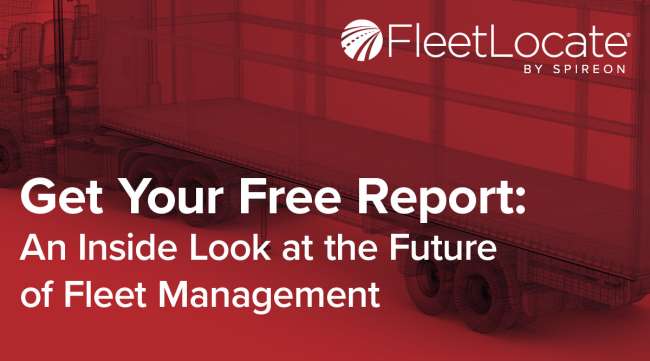The Future of Fleet Trailer Technology

Truck drivers represent the most worrisome constraint on U.S. economic growth right now.
Bloomberg made this assertion based on the driver shortage and the fact that the trucking industry represents 70 percent of the nation’s freight volume by weight. And as freight rates continue to rise, so too do operating costs for American businesses.
ATA Senior Vice President Bob Costello adds color to this outlook by projecting a driver shortage totaling 175,000 by 2026. “The industry is in for a lot of hurt — so is the economy,” Costello has said.
ACT Research reports that its For-Hire Trucking Index outpaced capacity in 14 of the past 15 months. Freight rates continue to rise as supply struggles to keep up with demand. Short supply means drivers have the power to pick and choose for whom they work.
In this climate, operational efficiencies can make the difference between whether your business can attract and retain capable drivers or will struggle to stay sufficiently staffed. New trailer and asset technologies streamline operations more than ever. But where does a trucking company begin?
Turn Your Workforce Into a Community
Many fleets see technology as a cost center. However, if they mean to stand out and appeal to a very limited workforce, the latest trailer technology can have a significant impact on a driver’s day-to-day routine and job satisfaction.
Providing a better in-cab experience not only gives companies an edge in the job market, but also creates efficiencies that benefit the job at hand. Tablets alone can bring navigation, smart ETAs (for both drivers and customers), and driver scorecards — even crowd-sourced information in which employees share notes on shippers and consignees. This can create a sense of community among a workforce that is otherwise disparate and remote.
One Such Case: Paper Transport Inc.
Paper Transport Inc. (PTI) is a Wisconsin-based full truckload provider with a reputation for being technologically progressive. The company’s 700 drivers operate more than 730 trucks hauling 2,400 trailers throughout the United States — the Midwest and Southeast in particular — offering regional one-way operations with dedicated, intermodal, and brokerage services.
Reputed as an early adopter of trailer technology, such as telematics and electronic logging, PTI has been able to stay ahead of the curve on many issues that plague the trucking industry today. When sourcing its trailer telematics provider, its initial primary concern was the ability to locate assets in the field. The company soon found that adding cargo sensors would provide an added layer of awareness that would benefit its drivers.
“One of the single biggest frustrations for a driver is trying to find an empty trailer, so just knowing location wasn’t going to be enough,” says Dan Deppeler, vice president, maintenance, at PTI. “We wanted to know the status of a trailer as well so we could push it right to the driver.”
Click here to read more and learn what to look for in a technology partner.
FleetLocate® is the user-friendly, yet powerful fleet management solution designed to help fleets get the most out of drivers, vehicles, assets, and trailers. From simple GPS vehicle tracking to comprehensive asset management to affordable ELD compliance, FleetLocate’s rich data is the backbone that drives fleet intelligence, productivity, and profitability. It helps fleets of all sizes do more with less, save money, improve driver safety, and satisfy customers – all with one simple application. Specializing in mixed fleets, FleetLocate supports light duty vehicles, heavy duty trucks, dry vans, refrigerated trailers, flatbeds, chassis, and other mobile assets like containers and construction equipment.


